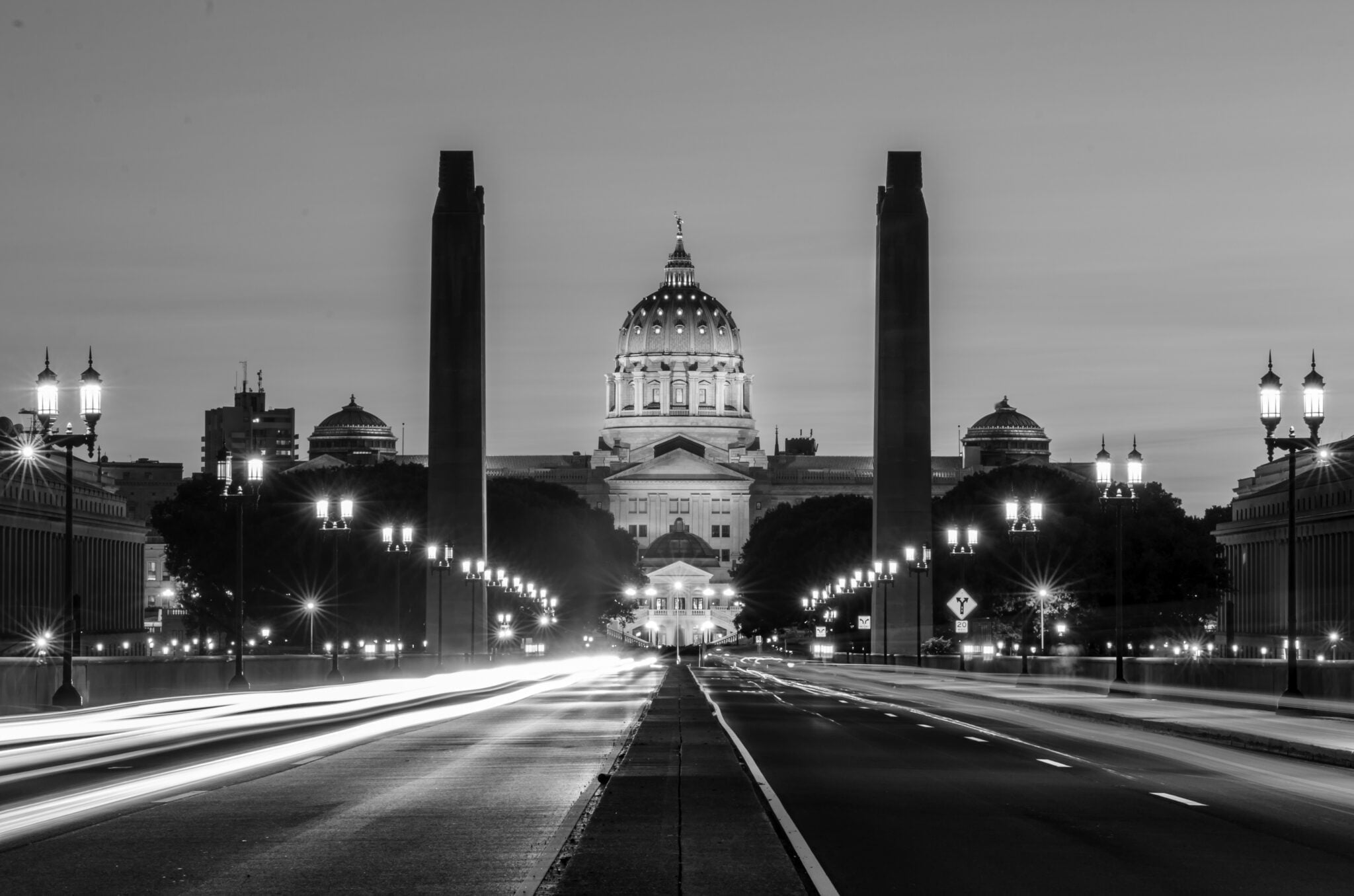The GOP’s war on democracy has many battle fronts. In Pennsylvania, that actually includes the state constitution.
Pennsylvania Republicans, who hold majorities in the State House and Senate, apparently despise the practice of checks and balances the judicial, legislative and executive branches of state government provide each other — a bedrock of U.S. constitutional democracy. That’s why they recognize using constitutional amendments as a weapon to pass laws, pack the courts, and ultimately gerrymander their way into a permanent legislative majority. And they hold a monopoly on this.
“We see a legislature that is reaching to grab as much power as possible while they still remain in power,” said Nick Pressley, director of campaigns for the Pennsylvania Budget and Policy Center. “I think my biggest concern is that only one party is able to introduce constitutional amendments, there’s no public input on them throughout the process until they get to the ballot, and that most often occurs in an off-year election with low turnout.”
It shouldn’t come as a surprise that these Republicans target low turnout elections, like last May’s primary election, where about 12 percent of eligible Pennsylvania voters ultimately decided that a legislature largely filled with Republican QAnon, “Big Lie,” and COVID-19 tinfoil hat conspiracy theorists should be able to override Governor Tom Wolf’s emergency powers. This was largely a result of the politicization of pandemic responses and COVID-19 in general, not just in PA, but across the country. A small silver lining is that both Bucks and Montgomery counties actually voted against this.
But, this targeting of off-year, low turnout elections isn’t a new phenomenon. Over two-thirds of these types of ballot questions have been on years which don’t include a gubernatorial or presidential election.
Furthermore, and not coincidentally, voters have only rejected six of 49 amendments dating back to when PA’s current constitution went into effect in 1968.
“This is not how the system was designed to work. Our constitutional amendment process was never meant to be a workaround for failed legislation or to threaten the courts into doing the legislature’s bidding,” wrote Khalif Ali, the Executive Director of Common Cause Pennsylvania, in a column for Penn Live. “Our state constitution, like our federal constitution, is intended to protect individual rights and liberties while respecting the equal and independent work of each branch of government.”
Now, I’m not actually against changing the constitution. I believe it just needs to be done more responsibly and judiciously.
Pressley has good idea.
“In my mind, if they really wanted the public to be able to ‘choose their own laws’ then the public should be able to introduce them and have a say in the crafting of said amendments as well,” he said. “Of course, this would make Pennsylvania more like California, which I think would make some legislators nervous.”
I would think so, considering recent polls show a majority of Pennsylvanians support raising our embarrassing $7.25 an hour minimum wage, legalizing marijuana, banning LGBTQ discrimination, and requiring universal background checks for gun sales as Morning Call columnist Paul Muschick recently pointed out.
One thing I would add is that voting to change the constitution ought to be done exclusively on presidential election years.
In the meantime, supporting State Rep. Pam Snyder (D-Jefferson) and Rep. Ryan Bizzarro’a (D-Erie) proposed requirement that any potential constitutional amendments be passed with two-thirds votes in the House and Senate rather than a simple majority would be a step in the right direction. There are currently 70 different constitutional amendments lurking in the shadows of Harrisburg waiting for the right low turnout election to pop up.
So there is no time to wait.
If we want Pennsylvania’s Constitution to be more than a political Etch a Sketch, you need to pressure your lawmakers, Democratic and Republican alike, to make these changes.






